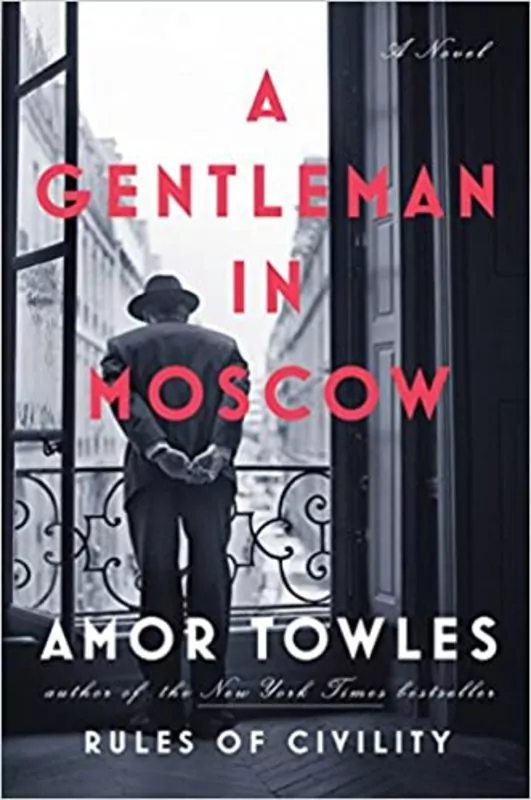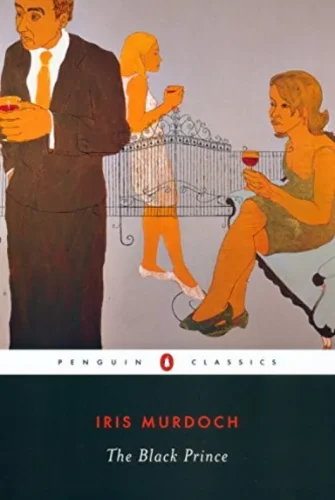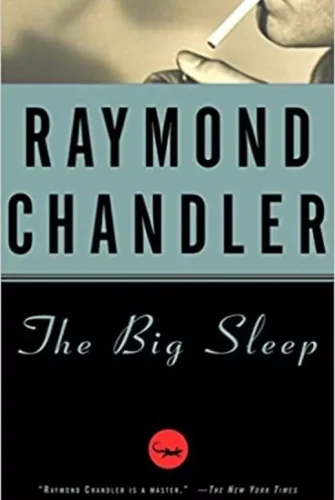During the summer month of June in the year 1922, an assembly of Bolshevik Russia judges Count Alexander Rostov to a continuous existence under restriction within the Metropol Hotel in Moscow. Rostov, a nobleman, could have faced a lethal verdict, but his earlier pro-revolutionary verse named “Where Is It Now” nudges the panel’s resolution. After the Count is transferred to a small chamber, previously utilized by personnel, he is mainly left in peace. The Metropol Hotel preserves its grace throughout the ensuing three decades, acting as a space for the new administration’s leaders to indulge in formerly aristocratic luxuries, as well as a place to amuse and monitor foreign reporters and dignitaries. Amidst the residents of the hotel is Nina, a spirited nine-year-old girl who acquaints the Count with the concealed corners of the edifice. Over time, the Count becomes anxious as Nina’s interests progress from princesses to the activities of bureaucrats and union leaders. With the passage of time, the Count crosses paths with Anna Urbanova, a distinguished performer. Despite an icy initial meeting, they quickly form a tight bond and share many close moments within the hotel. The hotel starts to recover from a post-revolutionary decline as the Soviet Union garners acknowledgment from the Western world. Unfortunately, an encounter with an incompetent server, dubbed the Bishop by the Count, leads to issues as the server ascends the hierarchical structure of the hotel. His grievance results in a decree that all wine, irrespective of its age, must be vended without labels and at a solitary price. This incident, coupled with the anniversary of his sister’s passing, prompts the Count to ponder suicide, which is fortunately thwarted by a timely intervention. In the following days, the Count secures a job as a server at the hotel and eventually ascends to the role of headwaiter. His life takes a drastic turn when he encounters Nina once more, who entrusts her daughter, Sofia, to the Count while she seeks her husband who has been exiled to Siberia. With guidance from Marina, the hotel dressmaker, the Count raises Sofia. As Sofia grows up, she nurtures a gift for piano playing which propels her to enroll at the Moscow Conservatory. During this period, the Count learns of the demise of his dear comrade, Mishka. When Sofia has the chance to tour Paris, the Count aids her in defecting to the Occident. The Count himself escapes the hotel with the assistance of Viktor Skadovsky and eventually finds himself at his former familial estate, where he is reunited with Anna Urbanova.

introduction
The narrative commences with an excerpt from a 1913 poetic piece, “Where Is It Now?” by Count Alexander Ilyich Rostov. The central motif of the verse inquires about the whereabouts of “purpose”. It mentions various locations where purpose is absent, such as “Peter’s Square” and “Vronsky’s saddlebags.” The verse fundamentally critiques the aristocratic class. At the age of thirty-two, Count Rostov is summoned before a governmental Emergency Committee. He is questioned about a verse he crafted in 1913, his choice to depart for Paris in the subsequent year, and his return to Moscow five years later. The Count responds to the interrogations with casual composure. When asked if he returned to join the Revolution, he asserts that his combat days were over. The Committee spares his life but confines him indefinitely to the Metropol Hotel, his abode for the past four years. If he were to depart from the hotel, he would face execution.
Book 1
After surviving an inquiry, the Count is escorted back to the Metropol, where he is moved from his third-story apartment to a compact space on the sixth story. He meticulously picks a few items to bring along, including a writing desk, a pair of scissors resembling an egret, and a portrait of his sibling Helena. During the transfer, he reminisces about his kin and his past. In his fresh quarters, he entertains a few guests, among them the hotel’s head waiter, the gatekeeper, and the seamstress. Post their departure, the Count unveils a hidden stash of gold coins in his desk. The following day, he beckons a money changer and they strike a deal. In spite of his confined circumstances, the Count still partakes in meals at the hotel’s dining area and finds means to obtain his preferred indulgences. The Count has a fixed appointment at the hotel’s barbershop. On a certain day, another patron shears part of the Count’s moustache off in objection to the Count’s preferential treatment. Suspecting the individual might be an official, the Count opts to completely shear off his moustache. Within the hotel, the Count frequently lunches in a ground-floor dining chamber he dubs the Piazza. One day, a young girl named Nina Kulikova joins him uninvited and questions his absent moustache. They engage in a discussion about royalty and duels, which the Count subsequently recounts at the hotel bar. Nina invites the Count for tea and the two swiftly become pals. The Count discovers that Nina also resides in the hotel and has been exploring it with a pilfered passkey. Together, they uncover concealed spaces and even visit the Count’s former suite. Motivated by their findings, the Count establishes a covert study by linking his room to an adjoining one. Subsequently, Nina persuades the Count to eavesdrop on a guild gathering transpiring in the hotel’s ballroom. Post the assembly, the Count mourns the loss of Nina’s curiosity in princesses, but is reminded that children’s fascinations change rapidly. The Count is requested by the hotel’s director who reveals that the personnel will no longer address him as “Your Excellency”. During the exchange, the Count stumbles upon a hidden cupboard containing exquisitely crafted items. He is subsequently visited by an aged school comrade, “Mishka” Mindich, and they reminisce about their past and ruminate on the future. As Christmas looms near, the Count gifts Nina his grandmother’s opera glasses while she astonishes him with the filched hotel passkey. Following a coincidental encounter with a youthful violinist in the lobby, the Count retires to bed and dreams about his prospective fate.
Book 2
On the anniversary of his house imprisonment, the Count prepares for a meeting with Mishka, in town for a congregation of writers. In the hotel lobby, he halts two canines from pursuing a one-eyed feline, culminating in a brief, frigid dialogue with the dogs’ attractive owner regarding manners versus lineage. Mishka, attired in a new coat and freshly groomed beard, recounts the delight of a recent poetry recital and his interaction with an up-and-coming young poetess, Katerina Litvinova. He promptly departs, incapable of joining for supper. Shortly after, the Count receives an invitation from the lady with the canines, who turns out to be Anna Urbanova, a renowned actress. Anna organizes a private dinner and astounds the Count with her down-to-earth demeanor. Their dialogue about their origins concludes with Anna kissing the Count and inviting him to her bed. Post their rendezvous, he departs her quarters, feeling akin to a specter meandering in the serene, uninhabited hallways, encountering solely the one-eyed cat. Near his chamber, he unearths a ladder leading to the rooftop, where he encounters a laborer, also from Nizhny Novgorod, relishing coffee and bread with honey crafted by nearby bees. Anna, irked that the Count hung up her blouse, starts leaving her garmentson the floor. Following a reprimand from her elder dresser, she throws all her garments onto the street only to retrieve them later. The Count, meanwhile, receives less attention from the hotel staff as they serve international visitors. He impresses Nina with a remark about prime and non-prime numbers. From the bartender, Andrey, he learns how the Bishop, with connections, transitioned to a hotel server role and enforced a rule mandating all wine to be sold without labels at a fixed price. This understanding enlightens the Count about how swiftly life can alter. In remembrance of his late sister Helena, he chooses to raise a glass on the 10th anniversary of her passing. Two years pass, ushering in transformations both within and outside the hotel. The Count prepares to pay tribute to Helena’s memory, visiting suite 317 for the final time, settling his debts, and organizing his burial attire. He observes Nina conducting scientific experiments, shares a final drink with a Brit at the Shalyapin, and discloses the events that led him to Paris in 1918. At midnight on the rooftop, he proposes a toast to his departed sister when Abram, the handyman, interrupts him. Abram’s hives are once again teeming with bees, and their honey carries hints of apple blossoms. After bidding Abram farewell, the Count seeks the company of Andrey.
Book 3
Commencing his day with coffee and exercises, the Count is soon interrupted by a cryptic envelope labeled “Four o’clock.” This serves as a covert message from Anna Urbanova, who awaits him upstairs. The Count holds a distinguished role as the headwaiter at Boyarsky’s, overseen by Chef Emile. Together with Andrey and Emile, he convenes to strategize the evening’s dinner, organizing the seating to prevent any clashes among officials and diplomats. They also deliberate on a fresh recipe involving saffron. A letter from Mishka dampens the Count’s spirits, revealing Mishka’s heartbreak over his former lover, Katerina. The Count is taken aback by Nina’s transformation, now a part of the Young Communist League, divulging her intentions to modernize farms in Ivanovo province. He frets over her decisions, but Marina reassures him that life will eventually guide her. Spending some personal time with Anna, now ascending in her acting career, they exchange tales of maritime escapades and reflect on their past. Later, summoned by Osip Glebnikov, a Party official, the Count is asked to enlighten Osip about the Western world. The Count consents to the proposal. At midnight, the Count, Andrey, and Emile relish a bouillabaisse concocted from a long-planned recipe. They reminisce about their past, unveiling Andrey’s previous life as a circus performer. The Count shares his belief that life will ultimately direct everyone, including Nina. The ensuing day, Nina entrusts Sofia, her daughter, to the Count’s care as she plans to trail her apprehended husband to Siberia. The Count readily embraces the responsibility. Sofia adjusts to her fresh existence at the hotel, and the Count swiftly discerns how to address her requirements. Their routine is filled with diverse activities, including setting up Sofia’s new bunk bed, engaging in hide-and-seek, and addressing the aftermath of an episode involving live geese. The Count continues his tutoring sessions with Osip, this time contemplating American culture and cinema. Meanwhile, an unforeseen visit from Mishka, who resided in the shadows in Yavas after serving forced labor, casts a bleak outlook on Russia’s future. Their dialogue evolves at the Shalyapin bar with Captain Richard Vanderwhile, culminating in the insight that what truly matters endures, though predicting these elements proves challenging. The course of the day alters when Sofia tumbles down the service stairs, sustaining a head injury. Rushing her to the hospital, the Count arranges for her treatment alongside Osip. Reluctantly leaving Sofia at the hospital, he returns to the hotel to discover gifts from Richard Vanderwhile. Sofia’s mishap leaves a pronounced impact on the Count, Andrey, and all individuals at the hotel. Despite the obstacles, life at the Metropol persists, delineated by Sofia’s recuperation, Andrey’s visit to her, and the imminent changes in their lives.
Book 4
At seventeen, Sofia, now a discerning and unassuming young lady with dark hair, is discovered in the ballroom with Piazza’s orchestra conductor, Viktor. The Count had engaged in a conversation about the swift maturation of children with Vasily but is perturbed upon hearing about Sofia’s company. Prior to Sofia clarifying that Viktor is solely providing her with a piano lesson, the Count intervenes. Sofia delivers a poignant performance of Chopin’s renowned nocturne, evoking emotions linked to thoughts of her mother. The Count reflects on his moments with Nina in the ballroom. Later, observing a young architect sketching the Piazza for a tourist pamphlet and defending its slightly worn appearance, he argues that it is the guests who genuinely define a space. That night, he shares a drink with Richard, a frequent guest from the American State Department, with whom he has developed a friendship. Recalling his encounters with Viktor and the architect, the Count compares his adaptability in his confined environment to moths changing hues in response to their surroundings. Concurrently, Viktor selects a Bach piece for Sofia to master, Mishka assembles a book by candlelight, and the architect conceptualizes an elaborate image of a bustling eatery. Before dining at the Boyarsky, Sofia and the Count indulge in a game they devised called Zut. Following dinner, he is taken aback to learn that Sofia and Marina are privy to his association with Anna. After supper, he finds Richard awaiting him in his former suite under the pretext of a poetry discourse. Richard voices concerns about the future U.S.-Soviet relationship post-Stalin’s reign, proposing that the Count furnish information about social gatherings in Moscow. The Count respectfully declines, eschewing involvement in espionage or hearsay. The subsequent year, Stalin’s demise precipitates the joint leadership of Malenkov, the progressive internationalist, and Khrushchev, Moscow’s erstwhile mayor. Following a trying day grappling with the Boyarsky’s novel order tracking system, the Count receives heartening news: Sofia emerges victorious in her Conservatory competition. Anna and Sofia relay the news, and the Count, Emile, and Andrey commemorate the achievement with a cake. The Count’s revelry is interrupted by Vasily, who alerts him to the Bishop and another gentleman approaching his quarters. The stranger bears a missive instructing Sofia to join the youth orchestra in Stalingrad, but Anna intercedes, asserting that the Minister of Culture has designs for Sofia in Moscow. Post their departure, the Count encounters Katerina, who imparts news of Mishka’s decease. She leaves the Count with a parcel containing a handcrafted compendium of bread-related aphorisms titled ‘Bread and Salt,’ Mishka’s final endeavor. The Count mourns his comrade and contemplates his exchange with Katerina.
Book 5
The Bishop, upon unearthing the Triumvirate’s daily congregations, assumes control of them. Approaching the close of 1953, he persists in effecting vexatious budget reductions. Subsequently, the Count covertly peruses Andrey’s 1954 calendar before pinpointing a forthcoming consequential event: a dinner involving two influential committees. Later, at the Shalyapin, the Count observes a novel American, “Pudgy” Webster, jesting about peddling vending machines in Moscow. Viktor joins, disconcerted by Sofia’s reluctance to partake in a goodwill tour. FollowingHaving a conversation with Sofia, she expresses her unease about performing without the Count. He reassures her that he would be able to hear her play even from the moon. Sofia’s decision to be in Paris in June initiates a countdown for the Count. He understands the importance of using his time wisely. In March, he goes to the barbershop, asks for a shave, and while the barber is absent, he takes the “Fountain of Youth” bottle and an extra razor. With the razor, he cuts into the pages of Montaigne’s Essays. In May, the Count sneaks into an Italian couple’s room using Nina’s key and steals some clothes. Later on, he requests Webster to deliver a letter to Richard in Paris. Subsequently, he retrieves a cap from the Italian couple’s room, narrowly escaping being caught. Towards the end of May, Sofia tries on a stunning blue dress for her upcoming trip to Paris. The Count is struck by her transformation from being a child to a woman. Shortly after, the Bishop moves the meetings to his office and insists that Andrey, not the Count, oversee the upcoming committee dinner. Following the meeting, the Count asks for a moment to speak with Andrey. During the committee dinner, Andrey experiences a sudden hand tremor, prompting the Count to step in. An orchestrated spectacle by Khrushchev unfolds during the event: the city’s power briefly shifts to a new nuclear plant. The Count shares his plan with Sofia and she reluctantly agrees to place her trust in him. After Sofia mentions a change of venue in Paris, the Count prepares a new map and they share a meal together. Following dinner, Sofia bids her farewells before leaving in a taxi. The Count then writes five letters, reconnects with Osip — now a high-ranking KGB official, and they watch Casablanca. The Count is reminded of Sofia’s imminent journey to freedom. He then takes a passport from a Finnish couple and discovers the Bishop with an outdated Paris map in his room. Swiftly, the Count confronts the Bishop in his office, armed with two loaded pistols, compelling the Bishop to destroy incriminating documents before being confined. The next evening, the Count steals a raincoat and fedora, waiting in the lobby. Meanwhile, Sofia delivers a remarkable performance in Paris, undergoes a transformation, and seeks asylum at the American Embassy, delivering a package of gold coins to Richard. As chaos ensues at the Metropol with incessant phone calls, the Count leaves the hotel.
afterword
At the St. Petersburg station café, the Count engages with Viktor for one final favor. Soon after, Viktor heads to Vyborg near the Finland border, leaves behind a hat, fedora, and a Finland guidebook with torn-out maps in a public restroom, and returns to Moscow. The Count mysteriously vanishes when KGB officers arrive at the Metropol for an investigation, leaving his companions bewildered. Marina, Audrius, Vasily, Emile, and Andrey receive farewell notes from the Count, each accompanied by a golden coin as a parting gesture. The following day, Osip, a senior KGB official, learns about a Conservatory student fleeing to Paris and her guardian missing from the Metropol. Utilizing information from the detained hotel manager, investigators find evidence in Vyborg indicating the escape of the guardian into Finland. With a subtle grin, Osip quotes Casablanca, “Round up the usual suspects.” After walking for several days, the Count arrives at his former family estate in Nizhny Novgorod Province. He comes across two young children, a boy and his sister, playing among the apple trees. Following them to the location where Idlehour once stood on the land, now reduced to ashes, the Count bids the children farewell and heads to a nearby village where Anna Urbanova patiently awaits him in a tavern, at a secluded table for two.


